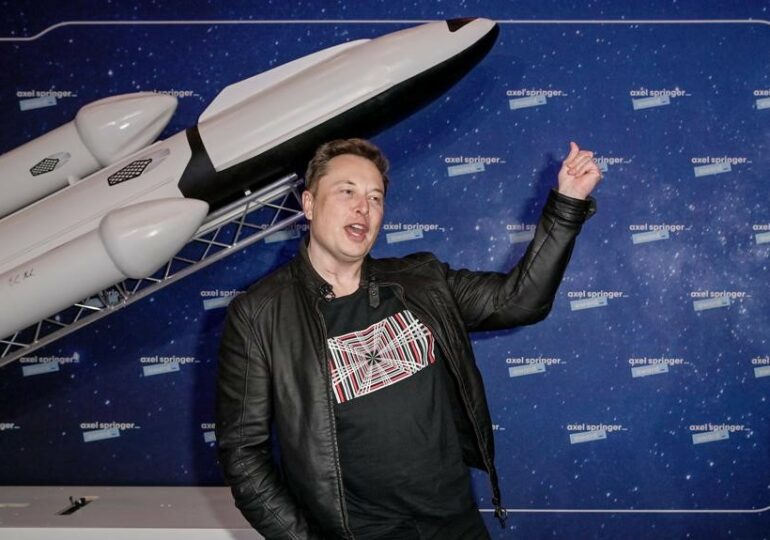Billionaire Elon Musk’s rocket company SpaceX reportedly completed an $850 million fundraising round last week, as it looks to raise capital for its ambitious Starlink and Starship projects.
News of the funding was first reported by CNBC, which said that the private company will now have a valuation of around $74 billion, citing people familiar with the financing. SpaceX did not immediately respond to Forbes’ request for comment.
The company raised new funds at $419.99 per share, per CNBC. That price is just a cent below $420 per share, potentially a reference to Elon Musk’s notorious Twitter post in 2018, when he joked that he would take Tesla TSLA -1.8% private at $420 with “funding secured.”
Musk—who is the world’s second-richest person, behind Amazon AMZN +1.5% CEO Jeff Bezos—owned roughly 48% of SpaceX prior to this latest funding round, according to Forbes’ calculations.
It is not immediately clear if Musk’s ownership was diluted by the new round. If he managed to hold onto all 48%, his stake would now be worth about $32 billion—up from roughly $20 billion previously, according to Forbes’ estimates. That would boost Musk’s net worth by $12 billion—but that’s still not enough for him to pass Bezos and retake the spot of the richest person on the planet.
He is worth $173.4 billion as of market close on Tuesday, February 16, according to Forbes. Most of his fortune lies in his stake in electric car company Tesla, shares of which have more than quadrupled in value over the past 12 months. Musk also serves as CEO of Tesla.
SpaceX was last valued at $46 billion in an August 2020 fundraising round. But some Wall Street banks had put that value even higher: In October, a Morgan Stanley MS -1.1% analyst gave SpaceX a bullish valuation of $100 billion—double what investors said it was worth in August.
The latest fundraising round comes in the midst of two capital-intensive projects, Starship and Starlink. Starship is the company’s long-term spacecraft project, intended to eventually replace SpaceX’s existing Falcon 9 rockets and Dragon spacecraft. The aim of the project is to develop a fully-reusable launch vehicle that is expected to take cargo, and eventually passengers, into space at a lower cost than other existing spacecraft.
Beyond successfully launching U.S. astronauts into space in May of last year, SpaceX said in 2020 that it was seeing “extraordinary demand” for its Starlink satellite broadband service. The project aims to build an interconnected network of about 12,000 small satellites in low Earth orbit. So far, early tests have shown broadband speeds capable of playing online video games and streaming movies, but the service faces criticism over its cost and the company’s ability to scale capacity.
In addition to raising money for its large-scale projects, SpaceX also completed a secondary transaction in which SpaceX insiders and investors were able to sell an additional $750 million worth of their shares, according to CNBC.














